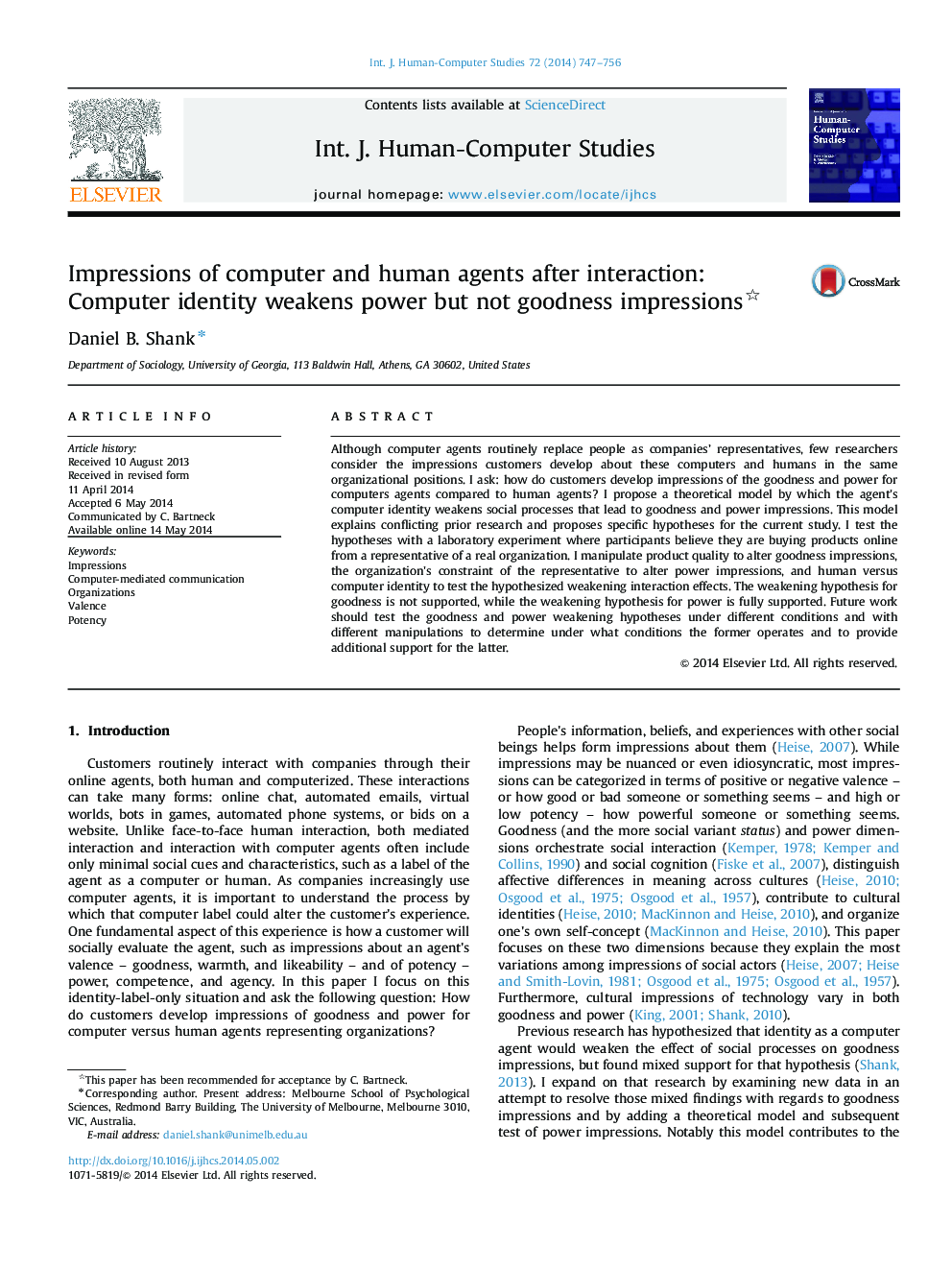| Article ID | Journal | Published Year | Pages | File Type |
|---|---|---|---|---|
| 401161 | International Journal of Human-Computer Studies | 2014 | 10 Pages |
•This study compares impressions of mediated humans and computer agents.•Impressions of computer agents are weaker than for human agents.•The weakening model explains previous research׳s findings for goodness impressions.•This model is tested with a 2×2×2 an organizational setting experiment.•The weakening model is supported for power, but not for goodness impressions.
Although computer agents routinely replace people as companies’ representatives, few researchers consider the impressions customers develop about these computers and humans in the same organizational positions. I ask: how do customers develop impressions of the goodness and power for computers agents compared to human agents? I propose a theoretical model by which the agent׳s computer identity weakens social processes that lead to goodness and power impressions. This model explains conflicting prior research and proposes specific hypotheses for the current study. I test the hypotheses with a laboratory experiment where participants believe they are buying products online from a representative of a real organization. I manipulate product quality to alter goodness impressions, the organization׳s constraint of the representative to alter power impressions, and human versus computer identity to test the hypothesized weakening interaction effects. The weakening hypothesis for goodness is not supported, while the weakening hypothesis for power is fully supported. Future work should test the goodness and power weakening hypotheses under different conditions and with different manipulations to determine under what conditions the former operates and to provide additional support for the latter.
